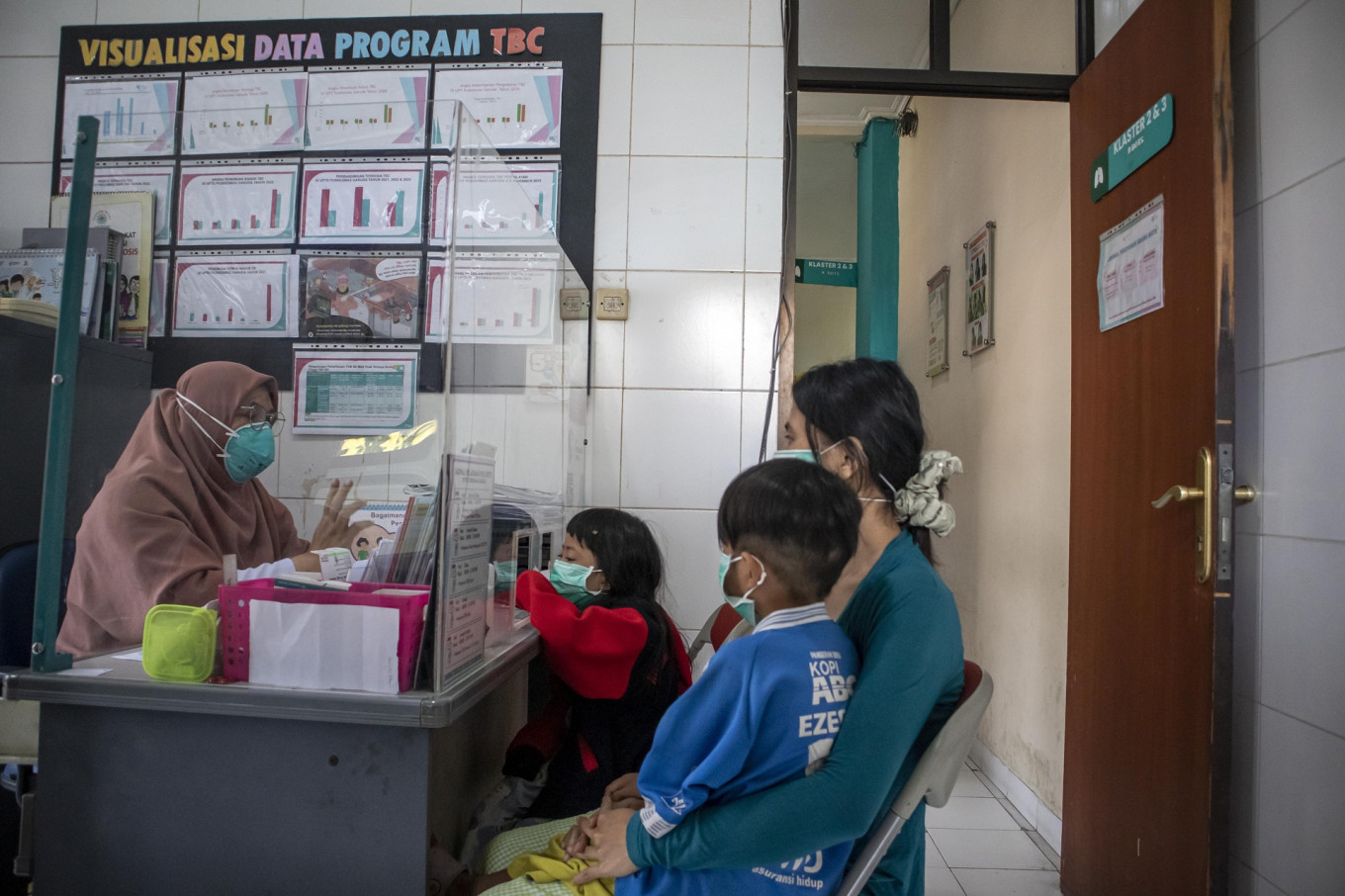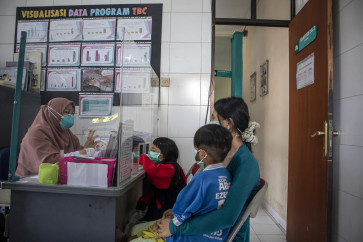Popular Reads
Top Results
Can't find what you're looking for?
View all search resultsPopular Reads
Top Results
Can't find what you're looking for?
View all search resultsGovt launches one stop service pilot for TB testing at puskesmas
In 2024, the Health Ministry detected around 885,000 TB cases, or only around 80 percent of the estimated 1.1 million cases.
Change text size
Gift Premium Articles
to Anyone
 A woman ('right') and her children undergo tuberculosis (TB) screening on May 14, 2025, at a 'puskesmas' (community health center) in Bandung, West Java. The Health Ministry has launched several measures to treat TB, including renewed public focus on screening, treatment and prevention, with around Rp 2.4 trillion (US$145 million) earmarked for the initiatives. (Antara/Abdan Syakura)
A woman ('right') and her children undergo tuberculosis (TB) screening on May 14, 2025, at a 'puskesmas' (community health center) in Bandung, West Java. The Health Ministry has launched several measures to treat TB, including renewed public focus on screening, treatment and prevention, with around Rp 2.4 trillion (US$145 million) earmarked for the initiatives. (Antara/Abdan Syakura)
T
o combat Indonesia’s persistently high tuberculosis (TB) incidence and mortality rates, the Health Ministry has launched a One-Stop Service (OSS) pilot program for TB detection at eight puskesmas (community health centers) across the country.
The OSS program integrates chest X-rays, Point-of-Care Testing (POCT), and molecular rapid testing (TCM) into a single diagnostic service.
Unlike conventional TB screening, which typically relies on sputum samples that must be sent to a laboratory for analysis, POCT uses a simple mouth or throat swab, making TB detection faster, more practical, and more accessible at the primary care level.
Meanwhile, TCM uses DNA-based technology to directly detect Mycobacterium tuberculosis, the bacteria that cause TB, and determine whether the strain is resistant to key antibiotics. While traditional culture methods can take weeks, TCM delivers accurate results in just a few hours, allowing patients to begin treatment sooner and reducing the risk of transmission.
Health Minister Budi Gunadi Sadikin said the new OSS program for TB detection has been launched at several puskesmas in Bandung and Bogor in West Java, and Semarang in Central Java, in cooperation with Padjadjaran University and the World Bank.
“By the end of this year, the program will be expanded to 100 puskesmas across eight provinces, West Java, East Java, Central Java, North Sumatra, Jakarta, Banten, South Sulawesi and East Nusa Tenggara,” he said on Sunday.
Budi emphasized that early detection and prompt treatment remain the most important measures to curb the spread of TB.

















